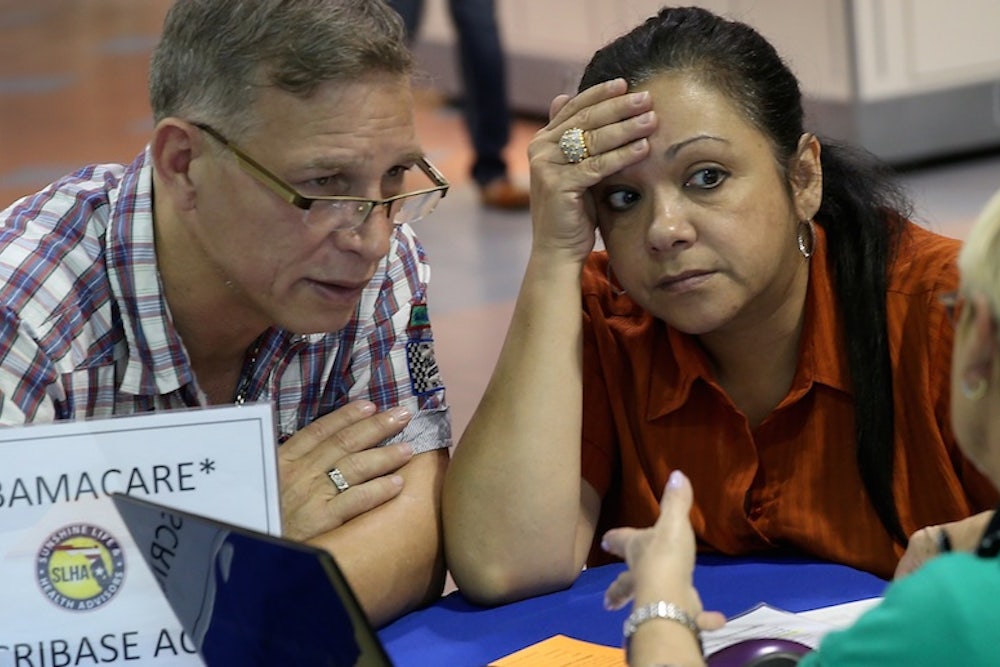You've probably heard conservatives complain that Obamacare is too generous. Liberals don't agree. In fact, they think it isn’t generous enough. If you want to know why, then check out a new story in Modern Healthcare.
The article, by Virgil Dickson, quotes the leaders of several community health centers from around the country. The centers, which provide low-cost or free care to people who can’t pay their medical bills, have been a key part of the health care safety net for decades. The people who run them are typically health professionals and community activists who have dedicated their professional lives trying to help the poor and underserved. For that reason, they have hailed the arrival of the Affordable Care Act, which has helped millions of otherwise un- and under-insured Americans to get decent, affordable health coverage—in some cases, for the first time.

But people who buy private coverage through the new marketplaces can choose different levels of coverage, from platinum (the most generous) to bronze (the least generous). There’s also a purely catastrophic plan, slightly less generous than the bronze plans, available to young adults. Silver plans were by far the most popular, even though the premiums are a bit more expensive than the bronze options. But about 1.6 million people, 20 percent of the total, selected bronze plans. (One reason is that, with subsidies, bronze plans for some people may be effectively available for almost no premium at all.) Now it seems some of the people who purchased them are discovering that they are stuck paying very large deductibles. The bills are so high that, they find, they can’t afford full charges at physician offices and hospitals. So they’re coming to the clinics, looking for discounted care.

This is not the least bit surprising. By design, bronze plans cover approximately 60 percent of the typical person’s medical bills. In practice, that can mean an individual is on the hook for more than $6,000 in out-of-pocket costs a year (the maximum Obamacare allows) for anything beyond preventative care (which, under the law, even bronze policies must cover fully). If you’re making $25,000 a year, you probably don’t have that kind of money lying around. Low-income people (and even some middle-income people) who buy coverage through the exchanges are eligible for extra assistance with their co-payments. But—and this is crucial—that assistance is available only to people who buy the silver plans. Bronze plan holders don’t get that extra assistance.
It’s hard to know how many people are running into the situation. It’s probably not that many, since only a fraction of the people buying bronze plans have low incomes and only a fraction of those are running up high medical bills. Overall, it's safe to say, both the uninsured and the clinics are better off with the Affordable Care Act than they would be without it. But this isn’t the first time I’ve heard stories like this and, undoubtedly, it won’t be the last. One solution would be to make sure everybody shopping for a plan on the new marketplaces understands the difference between buying a bronze and silver plan, and why a silver might ultimately mean lower medical bills even though the premiums are higher. Another solution would be to make sure that low-income people have more financial protection than they get now.
One last note: Medicaid has virtually no cost-sharing at all. For the truly poor, that's the best protection against large medical bills. But nearly half the states have not expanded eligiblity for their Medicaid programs, as Obamacare envisioned. Presumably some of the people buying bronze plans would qualify for Medicaid in these states, if only conservative officials would change their minds. They would be better off—as would literally millions of others.
